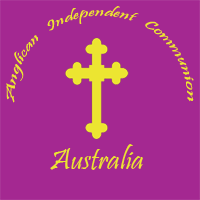Interdenominational Relations
Code of Practice
1. The Anglican Independent Communion is not an exclusive church, and does not believe that the only acceptable way to worship God is in the original forms from the birth of Anglicanism. Whilst we are committed to the Book of Common Prayer and the Authorised Version of the Bible, there are other Christian denominations who are not, but whom we would describe as being of 'like faith and doctrine', that is they teach the inerrant word of God as revealed through Holy Scripture, they stand against the rush of the liberal churches to abandon scriptural teaching in favour of social expediency, and they do not purport to ordain women into Holy Orders in the Apostolic Succession.
2. It is becoming increasingly common, due to shortages of ministers in other denominations, for our clergy to be asked to cover for these shortages by taking services in other churches. There is no fixed rule as to whether these invitations should be accepted, but our general policy is that they should, subject to certain provisos. The principal is that clergy should not be seen to engage in any conduct which would suggest that the AIC supports non-scriptural reforms in ecclesiology and public worship.
Clergy are actively encouraged to represent the AIC by taking part in ecumenical inter-denominational public events, such as Remembrance Day services. This includes other special services which may be of a non-sacramental inter-denominational nature, such as major Christian festivals, national commemorations, bell ringers' services, and civic services.
Invitations to preach in Roman Catholic, Russian Orthodox, Greek Orthodox, Coptic Orthodox and Armenian Orthodox churches should be freely accepted.
Invitations to minister in the Methodist Church, the Episcopal Methodist Churches (USA), Baptist Churches, Salvation Army, and Evangelical Free Churches such as Assemblies of God and the New Life Fellowship may be freely accepted. None of these churches ordain in the Apostolic Succession, and all teach scriptural truth. This may change if the Methodist Church in Britain decides to embrace an apostolic episcopate, which will inevitably include women. (Note: Methodist bishops in the USA are non-apostolic, and raise no succession issues).
Invitations to minister in Old Catholic churches should not be accepted without reference to the Chancellor for guidance in individual cases. This is because there are so many different small groups and individuals claiming to be in Old Catholic Orders, that specialist knowledge is required of with whom precisely one is dealing.
Invitations to minister or preach in the Traditional Anglican Communion, the Free Church of England or the Church of England(Continuing) should be freely accepted. Invitations to preach or minister in the Church of England are the most difficult upon which to advise. They must be a matter of personal conscience, subject to the provisions of the Canons that no deacon, priest or bishop of the AIC may receive Holy Communion from the celebration of any woman priest, and no priest or bishop of the AIC may con-celebrate with any woman priest. As a general rule there is no objection to clergy of the AIC taking Services of the Word in a Church of England church, although clergy may prefer not to do so where the incumbent of the parish is a woman. That being the case, they are unlikely to be asked in any event. Similarly there is no objection to clergy preaching as a guest where the celebrant is a man, but it is recognised that where the celebrant is a practising homosexual it would not be appropriate. It would be inappropriate for a guest preacher to preach at a service where the celebrant is a woman, and then be unable to receive Communion. There is no objection to clergy con-celebrating with a male priest of the Church of England who is of like faith and doctrine, such a priests of Forward in Faith or the evangelical Reform group. Even so, it is recognised that same clergy may not wish to do so because all clergy of the Church of England are in Communion, albeit impaired Communion, with women priests. That must be a matter of personal conscience and prayer.
3. It is not the policy of the AIC to engage in local unworthy political campaigns and un-Christian hostility towards ministers of other denominations. In cases where this courtesy is not reciprocated the problem should be referred to a bishop, for action by the Chancellor if necessary.


![Validate my RSS feed [Valid RSS]](uploads/AICA/valid-rss.png)